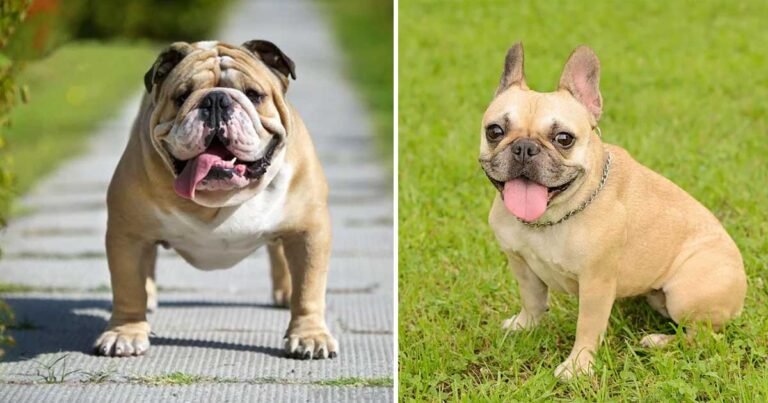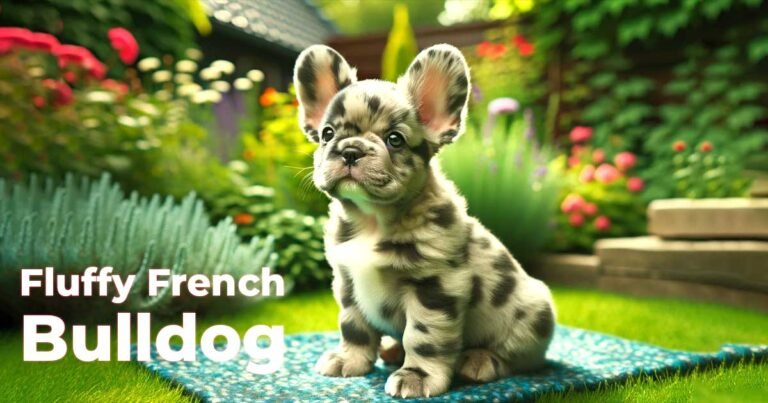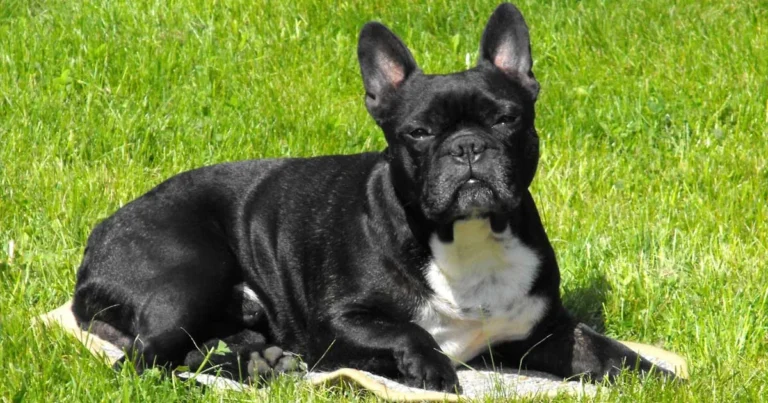Boston Terrier vs French Bulldog: Breed Traits, Costs & Care
Choosing between a Boston Terrier and a French Bulldog can be both exciting and challenging. These two breeds are famous worldwide because of their adorable looks, loyal nature, and compact size. Whether you are a first-time dog owner or have experience with pets, knowing their key differences will help you pick the best furry friend for your lifestyle.
Boston Terriers are lively, intelligent, and affectionate dogs, often called “The American Gentleman” because of their tuxedo-like coat and charming personality. They love being active and are happiest when engaging in play or training sessions with their families. This breed thrives in homes where they get regular exercise and mental stimulation, making them perfect companions for active owners.
French Bulldogs, in contrast, have a more laid-back and calm demeanor. Their signature bat ears and stocky bodies give them a distinct look that many find irresistible. Frenchies adapt very well to smaller living spaces such as apartments and tend to enjoy a relaxed lifestyle.
- Boston Terriers have higher energy and require more exercise daily.
- French Bulldogs are calmer and adapt better to apartment living.
- Boston Terriers usually have fewer breathing problems due to their longer snouts.
- French Bulldogs tend to be more expensive to purchase and maintain.
- Both breeds are affectionate and make wonderful family pets.
Whether you prefer an energetic buddy or a gentle lap dog, this guide will help you understand their key differences and similarities to make a confident decision.
Origins and History
Boston Terriers were developed in Boston, Massachusetts, in the late 1800s by crossing English Bulldogs with White English Terriers. Their distinctive tuxedo-like coat and friendly disposition quickly earned them the nickname “The American Gentleman.” Originally bred as companion dogs, their social and intelligent nature reflects their history of being close family pets.
French Bulldogs trace their roots back to France, where they were bred as lap dogs for lace workers during the Industrial Revolution. Their famous bat ears and compact muscular build became iconic features that made them popular city pets. Despite their calm personality, F
Both breeds share a connection to the English Bulldog but developed different traits suited to their environments and roles. Understanding these backgrounds helps explain many of their temperamental and physical characteristics.
- Boston Terriers were bred by crossing English Bulldogs with White English Terriers.
- French Bulldogs descended from small Bulldogs brought to France by lacemakers.
- Boston Terriers earned the nickname “The American Gentleman.”
- French Bulldogs were lap dogs for working-class communities.
- Both breeds have strong ties to English Bulldog lineage.
Knowing their history provides insight into why these dogs behave and look the way they do today.
Physical Appearance
Boston Terriers and French Bulldogs differ noticeably in size, shape, and coat. Boston Terriers tend to be taller and leaner, weighing between 12 and 25 pounds, and standing about 15 to 17 inches tall. Their short, smooth coat typically features tuxedo-style markings in colors like black, brindle, or seal, giving them a sleek, elegant appearance.
French Bulldogs are more compact and stocky, generally weighing 16 to 28 pounds with a height of 11 to 13 inches. Their coat comes in a variety of colors including brindle, fawn, white, and pied. The breed is instantly recognizable by its flat face, pronounced wrinkles, and large bat-like ears, which contribute to its unique charm.
These physical differences are not just cosmetic; they also impact grooming needs, exercise tolerance, and health risks for each breed. Your choice might depend on which physical traits align better with your lifestyle and preferences.
- Boston Terriers weigh 12-25 pounds and are 15-17 inches tall.
- French Bulldogs weigh 16-28 pounds and stand 11-13 inches tall.
- Boston Terriers have tuxedo-like coats, while French Bulldogs display diverse colors.
- Boston Terriers have longer snouts with fewer wrinkles.
- French Bulldogs have bat ears and more pronounced facial wrinkles.
Choosing between them often depends on which physical characteristics best fit your living situation and care capacity.
Temperament and Personality
Boston Terriers are known for their high energy, intelligence, and eagerness to please. They enjoy interactive playtime and mental challenges, making them quick learners during training. Their outgoing and friendly nature means they generally get along well with children and other pets, making them excellent family dogs.
French Bulldogs, by contrast, have a calmer and more affectionate personality. They thrive on companionship but can be a bit stubborn when it comes to training, so patience and gentle positive reinforcement are essential. Their laid-back attitude suits quieter homes and smaller spaces, making them wonderful pets for people who prefer a relaxed lifestyle.
Both breeds bond deeply with their owners and crave attention, but their differing energy levels and training needs mean choosing the right one depends on your daily routine and expectations.
- Boston Terriers are energetic, playful, and highly intelligent.
- French Bulldogs are calm, loving, and occasionally stubborn.
- Boston Terriers require more mental and physical stimulation.
- French Bulldogs adapt well to lower energy households.
- Both breeds form strong attachments to their families.
Understanding these temperament differences will help you find a dog that fits your home and personality.
Health and Lifespan
Boston Terriers generally live between 11 to 13 years and enjoy relatively good health. They are prone to some issues like eye problems (such as cataracts), allergies, and patellar luxation. Thanks to their longer snouts, Boston Terriers often face fewer breathing difficulties than flat-faced breeds, making their respiratory health somewhat easier to manage.
French Bulldogs have a slightly shorter lifespan, averaging 10 to 12 years. They face more health challenges primarily due to their brachycephalic (flat-faced) structure, which can cause breathing difficulties and related problems such as heat intolerance. Additionally, French Bulldogs may suffer from hip dysplasia, spinal issues like intervertebral disc disease, and skin allergies.
Regular vet visits, proper exercise, and attentive grooming are critical for both breeds to maintain a healthy and happy life.
- Boston Terriers live 11-13 years; French Bulldogs live 10-12 years.
- Boston Terriers generally experience fewer respiratory issues.
- French Bulldogs are prone to brachycephalic syndrome and hip dysplasia.
- Both breeds need regular veterinary care and preventive maintenance.
- Early socialization and moderate exercise support overall health and behavior.
Awareness of these health factors helps you prepare for responsible ownership and ensures your dog’s well-being.
Exercise and Training
Boston Terriers are active dogs that require about one hour of exercise daily. This can include walks, play sessions, and mental challenges such as puzzle toys or obedience training. Their natural eagerness to please usually makes training easier, and they respond well to consistent commands and rewards.
French Bulldogs have lower stamina and prefer gentler exercise routines. Short walks and light play two to three times a day are usually enough to keep them healthy and happy. Training a French Bulldog can be challenging due to their occasional stubbornness, so patience and positive reinforcement are key to successful learning.
Both breeds benefit greatly from early socialization to ensure they develop good manners and adapt smoothly to family life.
- Boston Terriers need about 60 minutes of daily exercise.
- French Bulldogs require shorter, gentler activity sessions.
- Boston Terriers are quick learners and easier to train.
- French Bulldogs may be stubborn and need patient, positive training.
- Socialization helps reduce territorial or behavioral issues in both breeds.
Matching your energy level and training style with your dog’s needs promotes a happy and well-adjusted companion.
Grooming and Maintenance
Both Boston Terriers and French Bulldogs have short, smooth coats that shed minimally, making grooming relatively simple. Weekly brushing helps keep their fur healthy and shiny by removing loose hair and distributing natural oils.
French Bulldogs require extra care for their facial wrinkles; these folds need regular cleaning and drying to prevent infections and irritation. Nail trimming, ear cleaning, and dental hygiene are equally important for both breeds to maintain overall health and comfort.
Keeping up with a grooming routine supports your dog’s well-being and keeps them looking their best.
- Both breeds have short, low-shedding coats needing weekly brushing.
- French Bulldogs require wrinkle cleaning to avoid infections.
- Regular nail trimming and ear cleaning are necessary for both breeds.
- Dental care helps prevent oral diseases and bad breath.
- Consistent grooming improves comfort and overall health.
A good maintenance routine helps ensure your dog stays happy, healthy, and comfortable every day.
Cost and Ownership
French Bulldogs generally come with a higher price tag, costing between $1,500 and $3,000 upfront. Their monthly maintenance expenses, including veterinary care, tend to be higher due to specialized health needs, often ranging from $70 to $150.
Boston Terriers are more affordable, with initial costs typically between $800 and $1,500 and lower monthly expenses of around $50 to $100. Their fewer health complications contribute to more budget-friendly ownership.
Regardless of breed, owners should plan for expenses related to quality food, grooming, training, and regular veterinary checkups to ensure their pet’s health and happiness.
- French Bulldogs cost $1,500-$3,000 to buy upfront.
- Boston Terriers cost $800-$1,500 upfront.
- French Bulldogs have higher monthly care costs.
- Boston Terriers tend to have fewer costly health issues.
- Budgeting for food, grooming, and vet care is essential for both breeds.
Understanding these financial factors helps prepare you for responsible and enjoyable pet ownership.
Conclusion
Choosing between a Boston Terrier and a French Bulldog depends largely on your lifestyle, living situation, and personal preferences. If you want a playful, energetic, and intelligent companion who loves activity and learning, the Boston Terrier is an excellent choice. However, if you prefer a calm, affectionate lap dog that thrives in smaller spaces and enjoys a relaxed lifestyle, the French Bulldog might be the perfect fit.
Both breeds offer love, loyalty, and companionship, but knowing their differences will help you select the one that fits best with your daily routine and home environment. Whichever you choose, you’ll be gaining a wonderful furry friend for many years to come.





